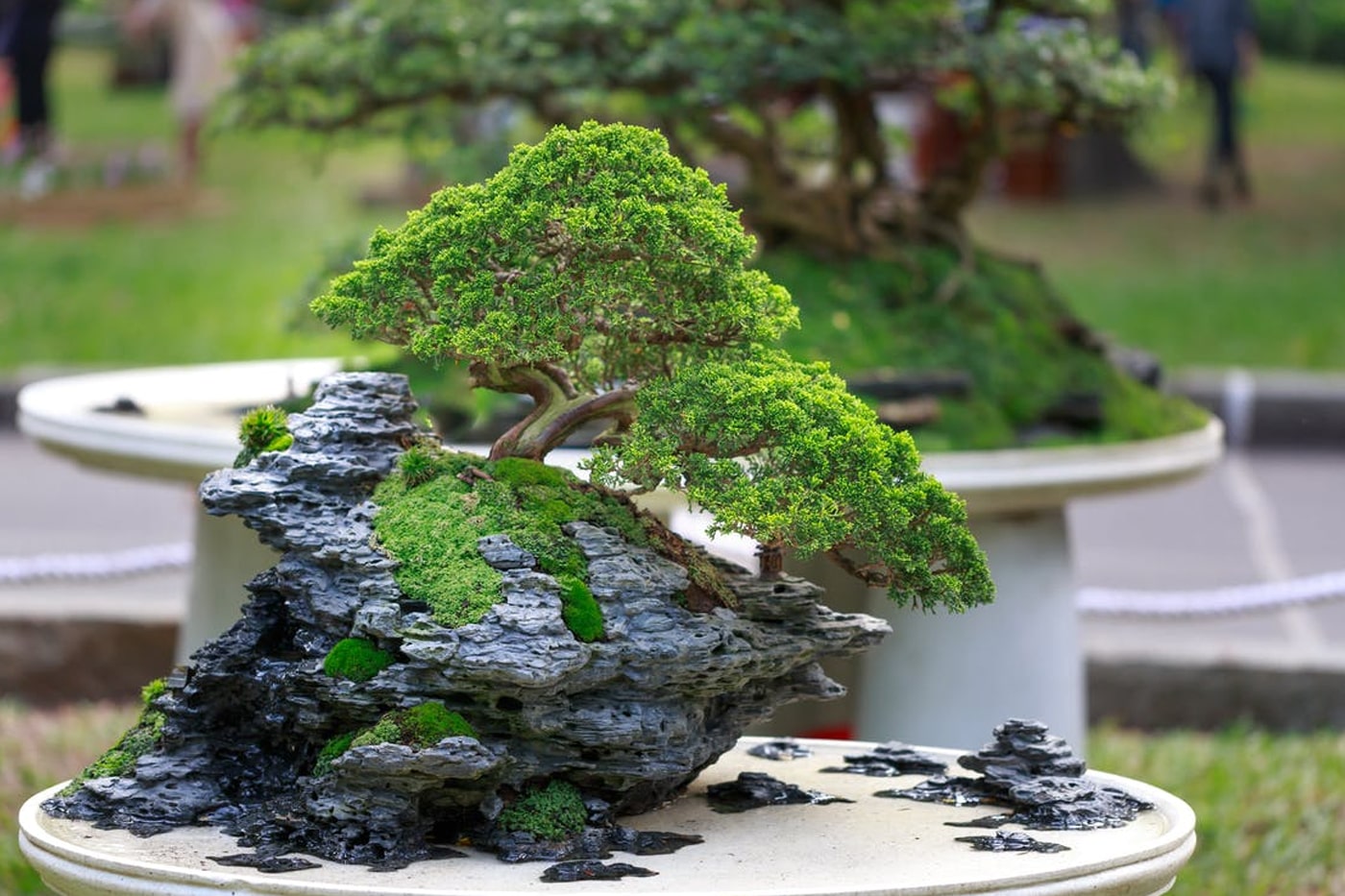Owning bonsai trees has always been a popular choice amongst horticulturists, but in recent times more and more people are getting into the art of gardening. Since this boom, information on how to properly care for these trees has become highly sought after. They are particularly interesting to people who want a tree but have limited outdoor space.
‘Bonsai’ technically refers to the art of growing small trees in pots. While it is mainly known as a Japanese art form, it can be traced back as far as the Chinese art penjing from the Tang Dynasty.
Bonsai trees can be a variety of different tree species, each of which has different levels of care. While they take dedication, bonsai trees can add a sense of zen to any space they’re in.
Below we have compiled a list of some tips to help you care for your own miniature tree.
Contents []
Know Your Tree Type

It is important to know what tree your bonsai tree actually is, this way you know exactly how to care for it. There are bonsai trees that are more beginner friendly than others. Here are a few:
- Ficus Ginseng
- Monkey Puzzle
- Chinese Elm
When choosing your bonsai tree you have the option to grow one from seed or buy one that is already grown. From a seed will take about 4 years until it is grown, but you will get more joy knowing you nursed your tree from a seedling.
Depending on the tree you choose, you need to know if it is an outdoor tree or an indoor one. Most people want an indoor one, but outdoor bonsai plants are just as gorgeous and can make any garden feel complete.
You are even able to get some bonsai trees with flowers (azalea and magnolia) or are able to fruit (crabapple and persimmon).
Choose The Right Location
Just like with any plant, mimicking its natural habitat will be the best condition for it. Since most bonsai trees are tropical it means they thrive in a humid environment with indirect sunlight.
Bonsai trees are an ideal choice to go in kitchens and bathrooms which get sunlight. They also don’t like cold winds so you should avoid putting them in hallways or entranceways.
When To Fertilize

Even though bonsais are small, they still need to grow. Fertilizer is a must for any type of bonsai tree. For some of the less fussy trees, you can use a simple houseplant fertilizer, but it is recommended to use a bonsai-specific fertilizer. Fertilizer can come in granules (which take longer to absorb) or as a liquid (which needs to be done frequently).
It is recommended to fertilize your bonsai at the beginning of its growth period. This usually happens at the beginning of spring, but you need to check your tree type and climate. Mature bonsai trees (one that is about 10-15 years old) will need less fertilizer than younger plants.
If you have recently repotted your bonsai, then it is recommended to wait a month before fertilizing it.
Don’t Let The Soil Dry
Each tree type has its own watering schedule, the only similarity is that it is mainly quite frequent. As well as watering, some bonsai trees also require you to mist their leaves, especially on hot days.
All bonsai trees require ample drainage. This can be done with a mixture of lava rock, granite, and pumice into the soil and drainage holes on the bottom of the pot.
On hot days the soil may become hard and dry, when this happens you need to submerge the plant for 10 minutes in water. Make sure the water goes up to about an inch on the trunk.
If your plant is recovering from dehydration, then it is important to regularly mist any new buds coming through in order to promote growth.
Repot Your Tree
Repotting your bonsai tree is essential and needs to be done every 1-2 years, ideally every year. The best time to do so is when the plant is about to start growing again, which is usually around spring.
You know your bonsai needs repotting if you can see the roots are very dense around the edge of the root ball. Mature bonsai trees only need repotting about every 3 years.
Final Thoughts
It is a common belief that bonsai trees bring harmony and balance. That the act of caring for the tree and pruning its leaves can be meditative. Looking after a bonsai tree is more than just watering it every day, it becomes a hobby and a passion.
Since bonsai trees are trees rather than plants, they have a long life span. When taken care of properly, a bonsai tree can last about 100 years. Making it the perfect family heirloom for generations to come.



